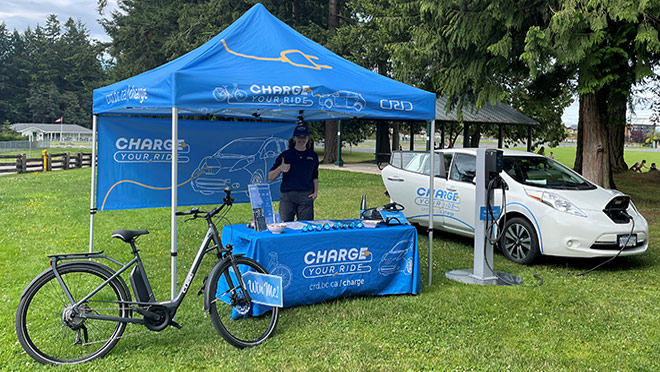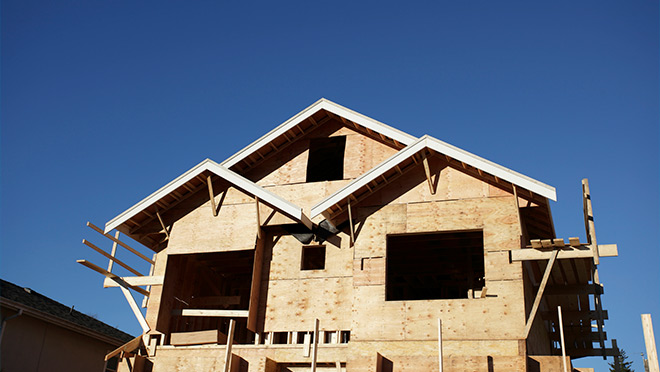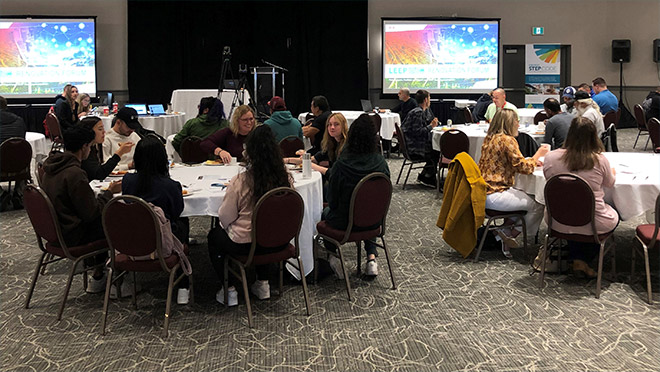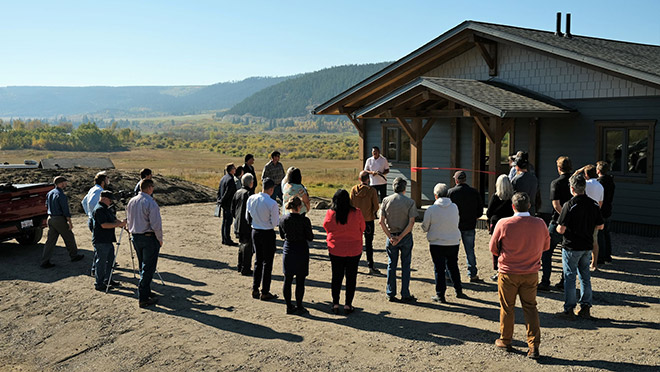November 2022
In this edition:

Capital Regional District (CRD) going "all in" on electric vehicle revolution
With the continued growth of electric vehicle adoption on Vancouver Island, the Capital Regional District (CRD) has responded with a sweeping electric mobility education and infrastructure program. The program is a collaborative effort amongst technical training institutions, strata councils, private sector partners, and the regions's municipalities.
The CRD is building on the success of its summer Charge Your Ride e-mobility public outreach and engagement project. In early October, they teamed up with the Electrical Joint Training Committee for a webinar to help electricians learn about the Electric Vehicle Infrastructure Training Program (EVITP) and review best practices.
The CRD has also sponsored electric vehicle maintenance training for automotive technicians at Victoria's Camosun College. The session familiarized technicians with electric vehicle components and additional training opportunities and certifications available to them. Staff are also hosting upcoming webinars for strata councils interested in adding charging infrastructure to their condo building parking facilities. Charge Your Ride was a collaborative effort by the CRD and their municipal partners who were awarded the Natural Resources Canada Zero Emission Vehicle Awareness grant.
The District's Electric Vehicle Infrastructure Roadmap predicts the region will need 770 new public Level 2 stations and 132 new DC fast charging stations by 2030 to support growing electric vehicle adoption rates. The CRD has allocated regional infrastructure funds to leverage external grants and increase public access. With support from our Sustainable Communities program, the District will complete public charging guidelines to support private sector investment over the coming months.
Recently, the CRD identified potential locations for hundreds of planned chargers following a collaborative mapping and needs-based assessment completed with their counterparts at member municipalities. The CRD and City of Victoria has submitted a $7 million application for close to 600 new electric vehicle charging stations to be installed across Southern Vancouver Island under the Green Infrastructure CleanBC Communities Fund (CCF), a part of Infrastructure Canada's Investing in Canada Infrastructure Program.
Learn more or contact CRD's E-Mobility Coordinator Maia Carolsfeld.

Carbon Pollution Standard jump-starts building electrification
In late September, the Province of British Columbia released a draft of their Carbon Pollution Standard. If accepted, the new standard would allow local governments to limit builders and developers from installing fossil fuel heating equipment in their new projects.
Though the province is still ironing out the details, this regulation could speed the building electrification that is already underway.
Both the City of Victoria and the District of Saanich have committed to use the forthcoming rule to help them meet their climate-action objectives. Buildings contribute 30 to 50 percent of a community's emissions. While existing buildings represent most of that total, every new building that doesn't burn fossil fuels is one fewer that will need to be retrofitted down the road.
We're committed to our Electrification Plan to help our customers make the switch from fossil fuels to clean electricity. We're working to remove barriers to electrification and provide local leaders with the tools, resources, and information they need to implement the new standard with confidence.

Say hello to Derek de Candole
Derek de Candole is a Community Energy Specialist at the City of Victoria and a member of our Community Energy Manager Network.
Derek started working in sustainability and climate action back in 2017 while at the City of Kamloops. He helped the city reference the BC Energy Step Code in its building bylaws and launched a program called Renovate Smart Kamloops to help homeowners make strategic energy upgrades.
At the City of Victoria, he led the work that inspired the mayor and council to adopt the Building Carbon Pollution Standard. His next project is compiling a report that offers recommendations on energy and carbon retrofits for the city's larger multi-unit residential buildings.
Our Sustainable Communities program co-funds positions like Derek's with cities around the province.

Natural Resources Canada tackling high-performance renos
In September, Natural Resources Canada (NRCAN) hosted dozens of builders, renovators, contractors and students at a series of forums. These forums explored strategies on how to deliver deep and cost-effective energy retrofits during residential renovations.
Participants at the Kamloops, Victoria, and Vancouver forums learned about regionally relevant options for building enclosures, mechanical systems, and renewable energy, as well as the importance of the integrated design process. Following the three events, NRCAN invited builders and renovators to apply for funding that would support trial home-renovation projects.
NRCAN hosted the forums under its Local Energy Efficiency Partnerships (LEEP) program. LEEP promotes energy-efficient construction by helping builders and renovators try innovations that build higher performance homes better, faster, and more cost-effectively. The federal government is looking to document and share scalable renovation processes, costs, and best practices to help the nation reach its energy and climate targets.
The national office of the Canadian Home Builders Association (CHBA) recently launched a Net Zero Renovations Program and is inviting local B.C. governments to sign up as municipal partners. Participants can access energy assessment rebates and other resources to help advance deep energy retrofits. For more information, contact Lynne Strickland, Director of Net Zero Housing at CHBA.

Indigenous housing project is net zero excellence in the Central Interior
In Early October, Williams Lake First Nation councilors Ann Louie and Rick Gilbert cut the ribbon on a brand new net-zero rental duplex on the Sugar Cane Reserve in B.C.'s Cariboo Region.
The duplex is one of six demonstration homes across Canada to meet the Canadian Home Builders Association (CHBA) Net Zero for Multi-Unit Residential Buildings (MURBs) program requirements. The home-labelling program is a joint effort of Natural Resources Canada (NRCAN) CHBA.
Zirnhelt Timber Frames, a local design-build company, built the exceptionally airtight home. They also harvested and processed local trees for the home's structural beams, covered the south-facing half of the roof with solar panels and added an all-electric heating system to eliminate fossil fuels.
The program advances solutions, technologies, and approaches to building Net Zero Energy Ready homes and Net Zero Energy MURBS. We helped fund this program with support from BC Housing, NRCAN, and Enbridge.